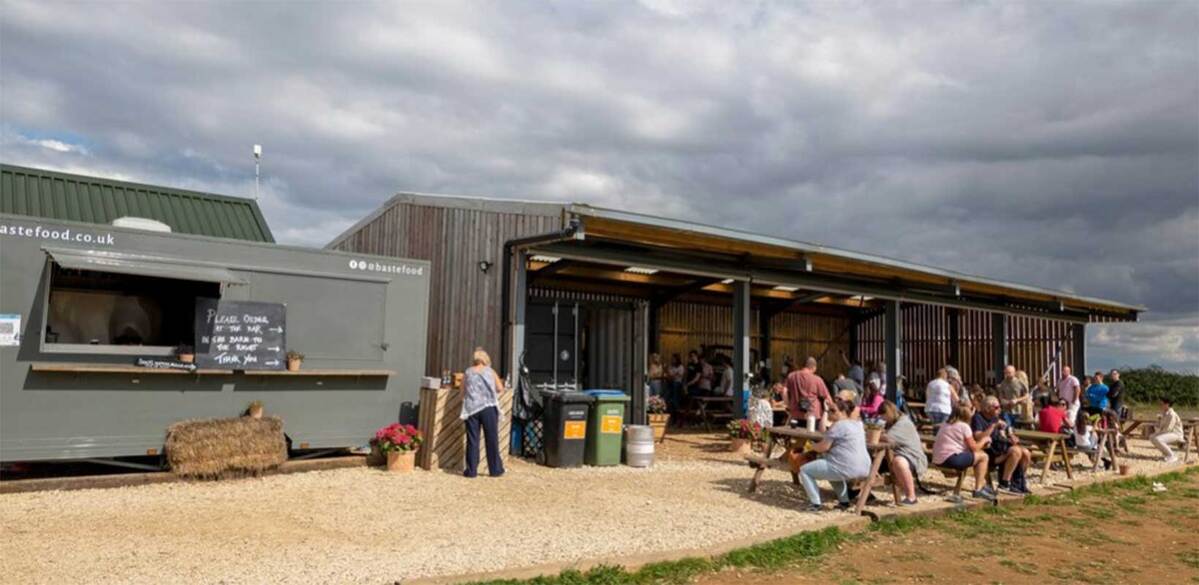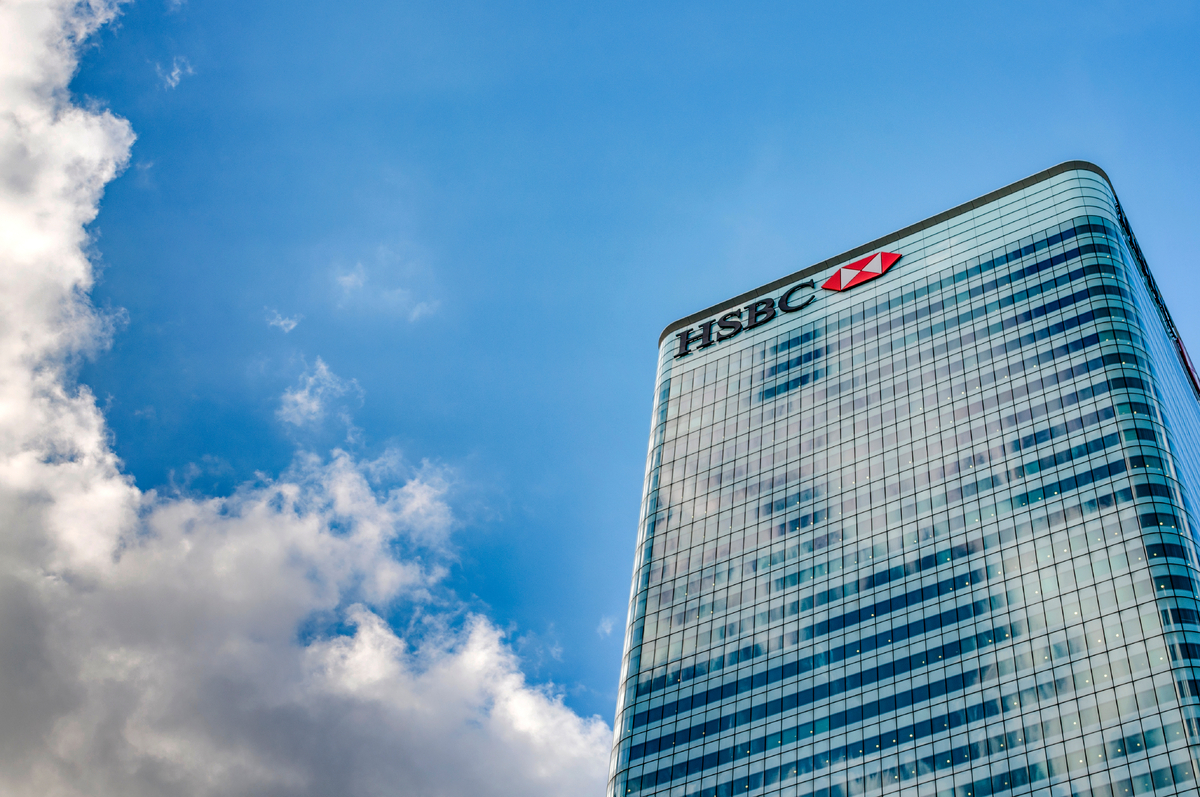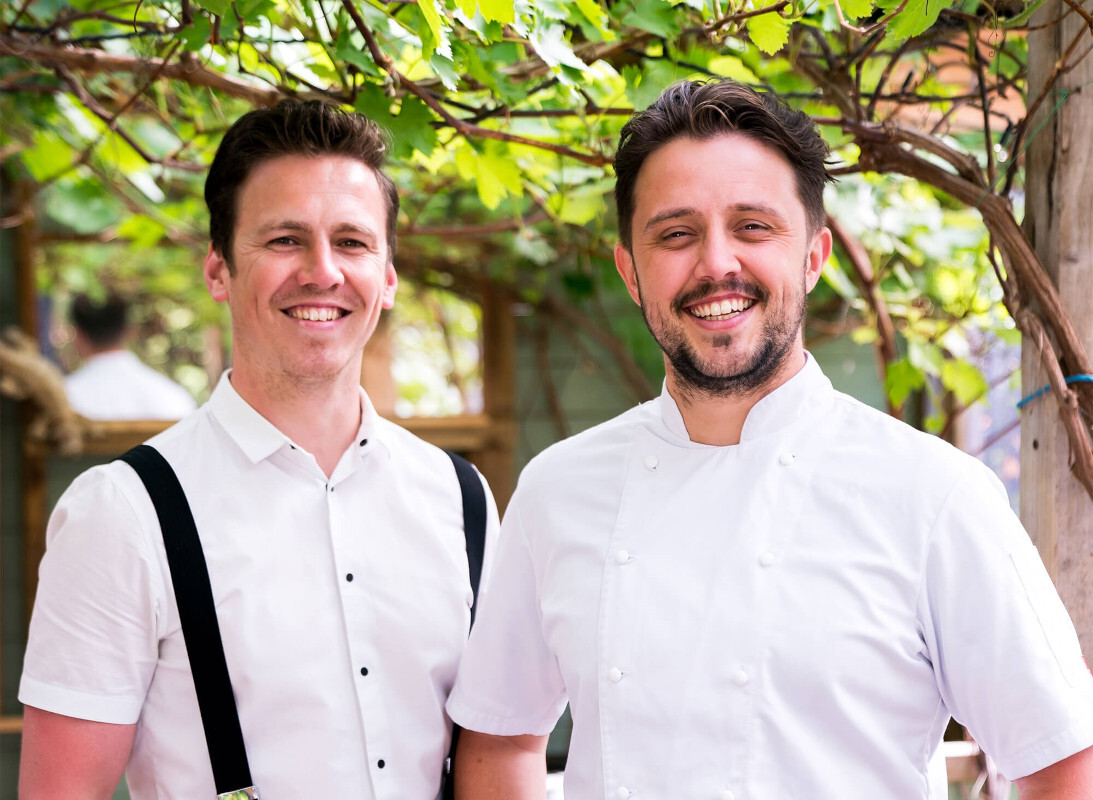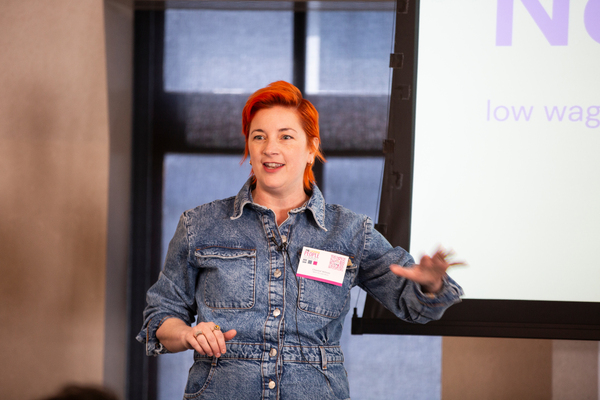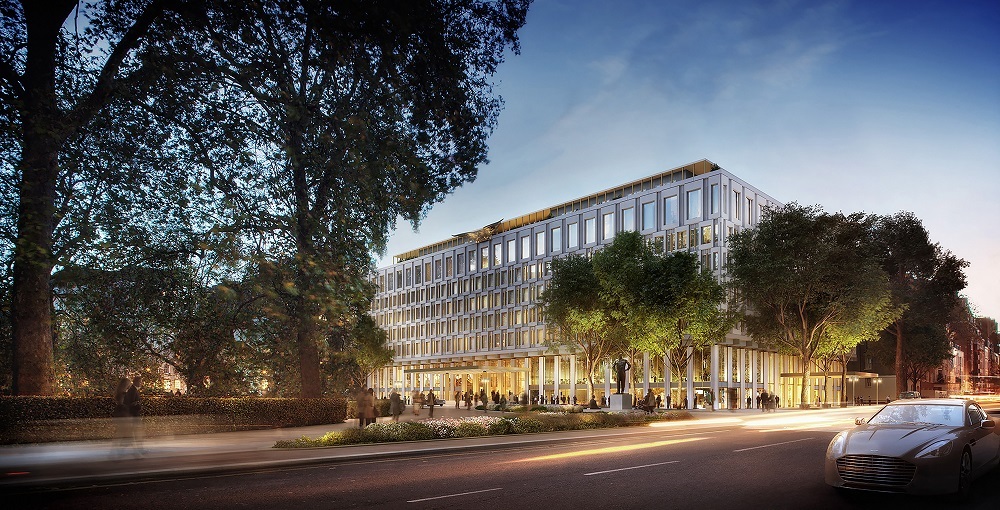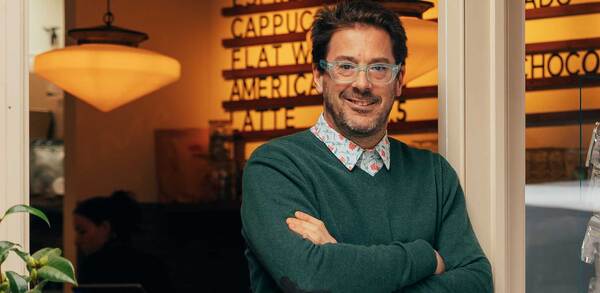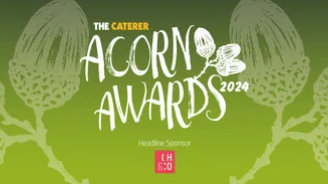Talk of the Tyne
Terry Laybourne's reaction to the announcement that he had been appointed an MBE in the Queen's New Year Honours list was one of total bemusement. "I seriously thought it was a practical joke at first," he says with total modesty. "It just happened to have been pinned on me, but in real terms it is for everyone who works with me, and for all chefs stuck in their kitchens, working outrageous hours and suffering terrible hardships.
"It is nice that the industry is starting to get some recognition for what it is," he continues. "It seems that the award has been given on the back of tourism, and shows that chefs are being valued as a vehicle for tourism. But all I've done is come to work and just do my job."
By just doing his job, Laybourne has built a mini-empire of some of the best restaurants in the North-east of England. The opening of 21 Queen Street in the heart of the Quayside area of Newcastle upon Tyne some 10 years ago has spawned the satellite eateries of Café 21 in Durras Hall, an affluent suburb of the city, and Bistro 21, 17 miles south on the outskirts of the historic city of Durham. In May, a fourth restaurant, yet to be named, will open in a magnificently refurbished late-18th-century building overlooking the River Wear in Sunderland.
In the official citation for his MBE, Laybourne is said to have been honoured for services to the restaurant trade in Northumberland. There is no doubt that, prior to the opening of 21 Queen Street, the North-east was largely a gastronomic desert, but Laybourne is uncertain as to whether or not he has been the catalyst for the explosion of quality restaurants in the region. Others, however, are more decisive about Laybourne's contribution to the local gastronomic map.
Peter Sloyan, chief executive of the Northumbria Tourist Board, was more than happy to support Laybourne's nomination for an MBE. "Terry has helped to change people's perceptions of the culinary tradition of the region," he says. "By gaining the first Michelin star for the area in 1992, 21 Queen Street has undoubtedly brought people into the North-east. In turn, he has inspired other young chefs in the region to improve themselves and raise their levels of performance.
"At the same time as expanding his own business, Terry has helped raise about £50,000 for the local Yellow Brick Road children's charity by organising the Pride of Northumbria dinners over three consecutive years."
One of the young chefs to have been inspired by Laybourne is Barry Forster, who opened his own eponymous restaurant in East Bolden, just outside Sunderland, eight years ago. "Before Terry opened 21 Queen Street, the North-east was in the dark ages - we were a laughing stock," Forster says. "I was working in Jersey at the time, and once I saw his success I decided it would be possible to come back home and open a decent restaurant of my own. There is no doubt that Terry led the way and others have followed."
There is some irony to the fact that Laybourne's expansion from one to four restaurants, come May, has taken place at all. When last interviewed by Chef more than seven years ago, he emphatically declared that he had no ambitions to open more restaurants. "It is hard enough to maintain standards in one place," he said at the time.
However, by 1994, 21 Queen Street was running smoothly and Laybourne decided the time was right to open a second restaurant. "Although we were a great success, I realised that we had built a barrier around us," he says. "We had a reputation for being a posh, expensive restaurant and were frightening away the local, casual diner. I was convinced there was a market for serving quality, fresh food at a reasonable price."
Laybourne also realised that, by opening a second restaurant, he would be able to provide some kind of career path for his staff. "I was spending my whole time training people, who I was then losing," he says. "But then they were coming back to me, unhappy that the new restaurants they were working in were not of the quality they were used to."
Paul Scott is typical of the employees who have been able to progress their careers through Laybourne's restaurants. Currently manager of Bistro 21, he originally started off at 21 Queen Street before moving to Café 21, and in May will be opening the new restaurant in Sunderland.
Café 21 was launched with a no-bookings policy, and very quickly there were queues of customers lining up outside. The 40-seat restaurant was initially serving two and sometimes three sittings during an evening service. The restaurant's busiest evening so far has seen 114 people sitting down for dinner.
Laybourne was thus encouraged to open Bistro 21 by a customer, property developer Peter Candler. "He had bought a big, ugly old building on the outskirts of Durham which he aimed to restore to its former glory," says Laybourne. "The initial idea was to create a 13-bedroom hotel with a dining room, but when I saw the costings I ran a million miles. We would have had to charge high prices to get the return and that's what I was trying to get away from.
"They eventually enticed me back, however, having got rid of half the property, to open just a restaurant."
Bistro 21 is a larger version of Café 21, serving simple, hearty food with big flavours. As well as a 55-seat dining room, it offers three private function rooms, a glazed cloister area for pre-dinner drinks and a courtyard for summer dining. Whereas Café 21 initially competed with 21 Queen Street for some business, Bistro 21 has brought in many new customers, as will the new 70-seat restaurant in Sunderland.
Average spend per head at Café 21 and Bistro 21 is £27 and £29 respectively, compared with £48 at 21 Queen Street.
Laybourne continues to work hands-on in the kitchens at 21 Queen Street for the majority of the time, popping in and out of the other restaurants when he is needed. "I get involved in writing their menus," he says, "but they largely run themselves these days."
Nearly 10 years after opening 21 Queen Street, Laybourne has returned to cooking more technically exacting food. "I once worked with a New Zealand guy who had all the enthusiasm in the world, but no technique," he says. "He would throw together ingredients which one day would taste brilliant, but there were no guarantees that it would taste good next time. It's a rather shallow approach to cooking."
A particularly involved dish, currently on the à la carte menu at 21 Queen Street, is slow-cooked knuckle of pork, leek and potato Charlotte, truffle sauce and foie gras hollandaise (£18.50). The knuckle is braised with some trotters and root vegetables in veal stock, Madeira and a little Cognac. The flesh is removed from the bone and diced coarsely. In the meantime, the cooking liquor is reduced to a glaze and then used to bind the meat. The meat is cut into rings, cooled and wrapped in crépinette before being rebraised. Regular basting of the meat creates a high gloss. The braising liquor is finished off with truffle jus and served alongside a foie gras hollandaise.
A corresponding dish at Café 21 and Bistro 21 would see a pork shank being simply braised with root vegetables and served.
Running the café and bistro alongside 21 Queen Street helps to keep food costs down. Laybourne will buy a whole local Kielder deer and break the carcass down himself, retaining the loins for 21 Queen Street, to be served with brandied cherries, walnuts, grapes and fresh pasta (£18.50). The shoulders will be used for a casserole and trimmings turned into a terrine for the café and bistro. Trimmings from fish at 21 Queen Street will likewise be used for fishcakes, which are served with buttered spinach, hot tartare sauce and chips (£9.50) at Bistro 21.
While Laybourne's mind is firmly focused in the short term on the opening of the Sunderland restaurant and the expansion of Café 21 (he has just taken out a lease on the neighbouring property, allowing the café to increase to 60 seats and provide an improved kitchen), he is in turmoil as to which direction the business should develop in the future.
"I've loved creating the restaurants and working with enthusiastic people from other industries to achieve our aims," he says. "Initially, I would like to shift 21 Queen Street to the edge of town, where we could achieve a higher spend by providing a better location and car parking. Then we would turn [the current premises] into a brasserie. But I can't imagine we would open more restaurants after that, unless we underwent some serious restructuring, with the appointment of development managers and the like.
"At the moment, we've got something rather unique here, and I'm scared of developing it further in case it might lead to the mediocrity that is so widespread." With Laybourne in control, however, it is unlikely that the jewel of the North-east will ever be mediocre.


